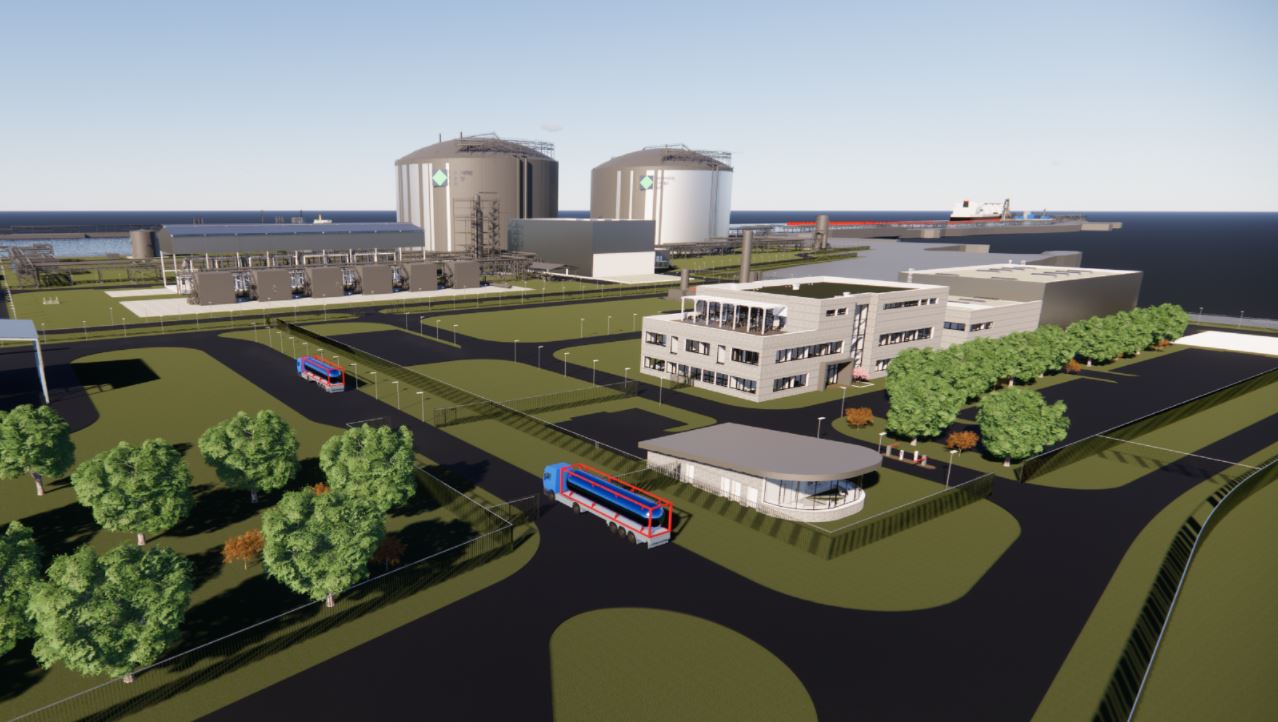German gas importer Securing Energy for Europe (SEFE) has booked long-term capacity at Hanseatic Energy Hub’s planned Stade LNG import terminal in Germany.
Starting in 2027, SEFE, previously known as Gazprom Germania, plans to import at least 4 bcm per year of liquefied natural gas via the terminal, according to a statement by HEH.
SEFE booked the capacity for 20 years and with future flexibility to switch to ammonia as a hydrogen-based energy source, HEH said.
The deal is “an important building block in SEFE’s mission to ensure the security of gas supply in Germany and Europe,” the statement said.
According to a recent report by Reuters, SEFE also booked 3.5 bcm of regasification capacity at the Dunkirk LNG terminal in France.
Also, commodity trader Trafigura said in December it would supply US LNG to SEFE, which was recapitalized by the German government last year.
Another deal for HEH
This new deal between HEH and SEFE follows a similar agreement HEH signed with German energy firm EnBW in December.
Under this deal, EnBW would import 3 bcm of LNG per year via the terminal in Stade beginning with commissioning in 2026.
HEH’s LNG import facility will have a capacity of 13.3 billion cubic meters.
In June last year, the consortium consisting of Fluxys, Dow, Partners Group, and Buss Group, launched a binding open season for the facility.
German FSRU terminals
Prior to the onshore facility, Stade will host one of the five FSRUs chartered by the German federal government.
HEH said in September last year that one of these FSRUs would arrive in 2023.
Germany’s first FSRU-based import facility in Wilhelmshaven, operated by Uniper on behalf of the government, has received its second LNG tanker this week while Deutsche Regas officially launched its FSRU-based LNG import terminal in Lubmin, Germany’s second such facility, on Saturday.
The Deutsche ReGas facility is the first and currently the only private FSRU-based LNG import project in Germany.
The next government-backed project to go online is the new Elbhafen LNG import terminal in Brunsbüttel, led by RWE.
Newly formed state-owned firm, Deutsche Energy Terminal GmbH (DET), will operate these five government-backed FSRU terminals.

